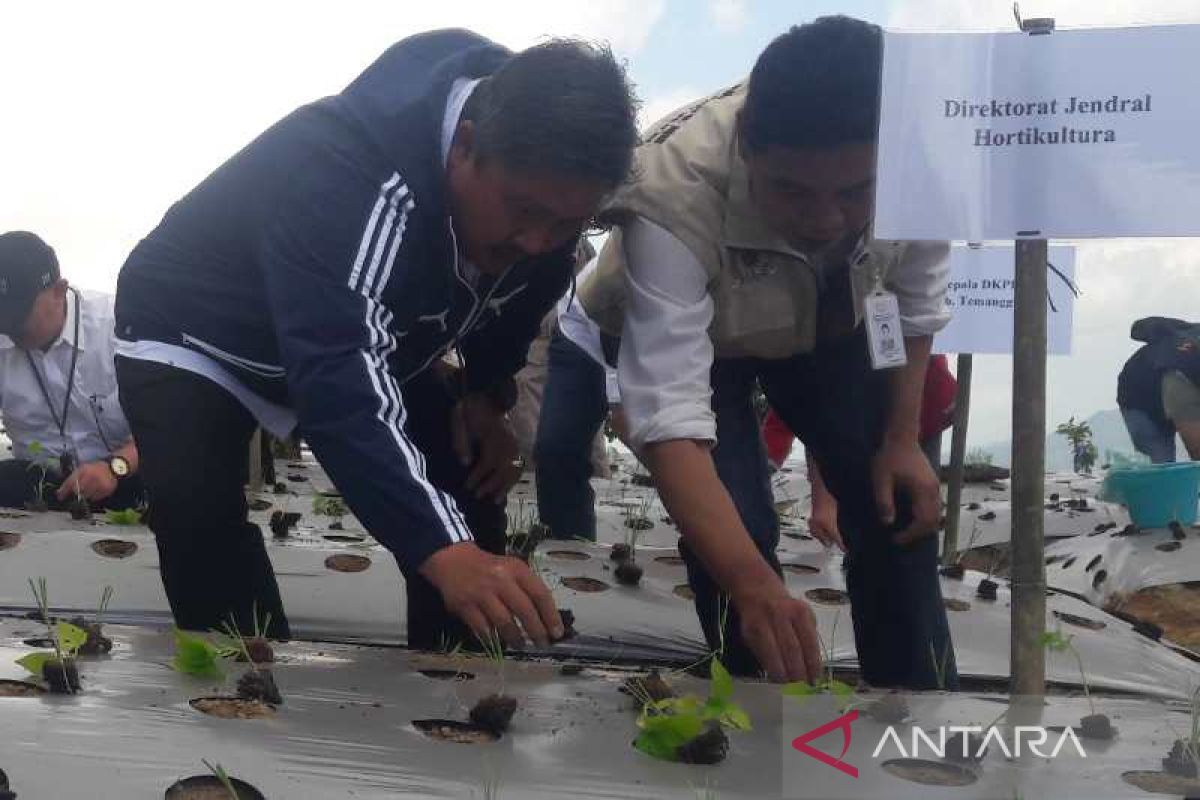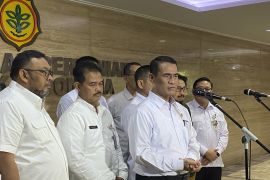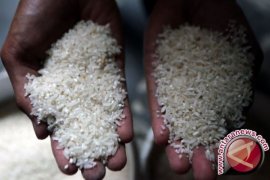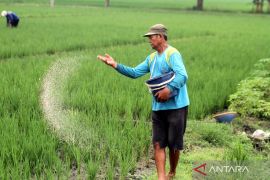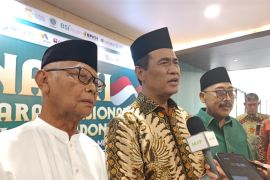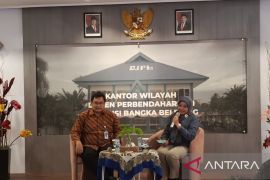"We are targeting all provinces in Indonesia to develop a model like this. This model uses seeds, both for shallots and chilies," the Ministry's Director General of Horticulture Prihasto Setyanto said while planting shallots in Tuksari Village, Kledung, Temanggung District, on Sunday.
According to him, soil blocks are without plastic so they are environment-friendly.
Setyanto said that this model is not only used for the cultivation of shallots and chilies, but also for other vegetable crops. "This technology is designed by young people in Central Java, and will be developed throughout Indonesia," he said.
This crop planting model has actually existed for a long time in Temanggung, but has not been popular in other regions, he revealed.
"I visited Central Java following the Minister of Agriculture's directives to observe commodities that affect inflation, especially shallots and chilies to face the fasting month and Eid al-Fitr later," he said.
The ministry's officials visit the regions to observe important commodities and to prevent potential price fluctuations during religious holidays.
Soil block utilizes useful organic waste without damaging the environment. This tool was developed by Eka Mardiyono, a soil block business actor from Central Java.
Mardiyono explained that all the materials of the soil block are organic matters needed by plants without the addition of soil. "The materials needed to compile these soil blocks consist of manure, natural phosphate, dolomite lime, cocopeat, and peat in a ratio of 30:5:5:30:30," he pointed out.
The utilization of soil blocks coupled with weather-adaptive crop varieties is a perfect combination to increase the quantity and quality of crop results.
Related news: Governor pushes land restoration for boosting shallot productivity
Related news: Chili, cayenne pepper, shallot supply recovery causes deflation in Aug
Related news: President Joko Widodo highlights shallot, sugar prices still high
Translator: Heru S, Kenzu
Editor: Azis Kurmala
Copyright © ANTARA 2022
